Author: Liam Riker
Hey guys. Since I’m supposed to be covering Action Role Playing Games throughout my postings on The Gamer’s Smorgasbord, I thought it was about time to ask the crucial question. What exactly is an ARPG? Or more specifically, what am I referring to when I talk about ARPG’s?
The ARPG genre, or Action Role-Playing Game genre, is loosely defined to say the least. Some prefer to refer to it as a sub-genre of the broader RPG gaming genre. Those who prefer to refer to it as a sub-genre of RPG games, feel that ARPG’s only differentiate themselves by their unique real-time action oriented combat mechanics, in comparison to more classic RPG’s that utilize a turn-based or menu-based combat system. But so many different types of RPG’s could be characterized as having these real-time combat mechanics, and thus could be classified under the giant ARPG umbrella. And yet, over the years these different RPG’s have each been given their own specific gaming genre.
In this post I won’t be focusing on Eastern ARPG’s, like my beloved Kingdom Hearts franchise or my new obsession: Final Fantasy XV. I think for the sake of simplicity, it’s easier to analyze Western RPG’s and the various sub-genres that have spawned under the ARPG tent here in the West.
There are your Hack and Slash Games, which feature real-time combat, where the player usually takes control of a playable character from a third-person point of view. These types of games can range from more Action-Adventure oriented games like the iconic Legend of Zelda franchise, to grittier Action RPG’s that exhibit more identifiable RPG elements, like the Dark Souls trilogy which I’ve been analyzing throughout a majority of my posts. Throughout my postings I will be referring primarily to these types of games as ARPG’s, though I won’t really focus as much on the Action-Adventure style games. I personally feel that the Action-Adventure category of Hack and Slash games, is very different from the Hack and Slash games I see having more identifiable similarities with what I consider to be the ARPG genre.
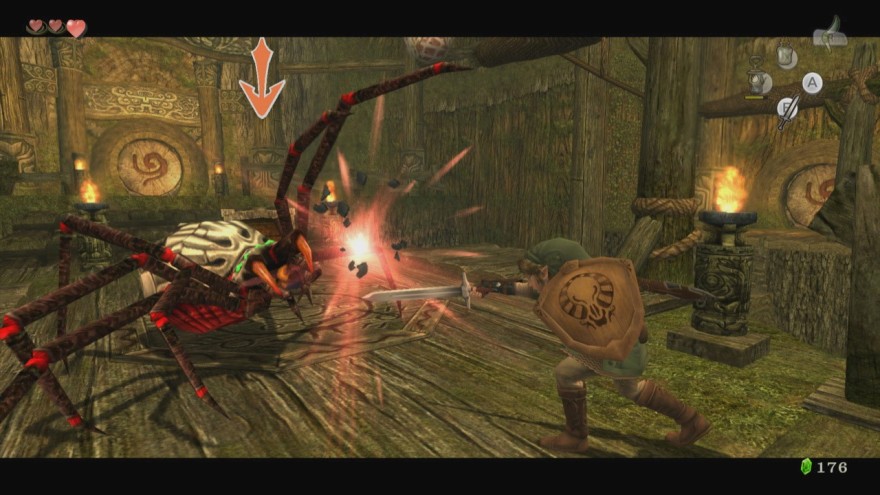
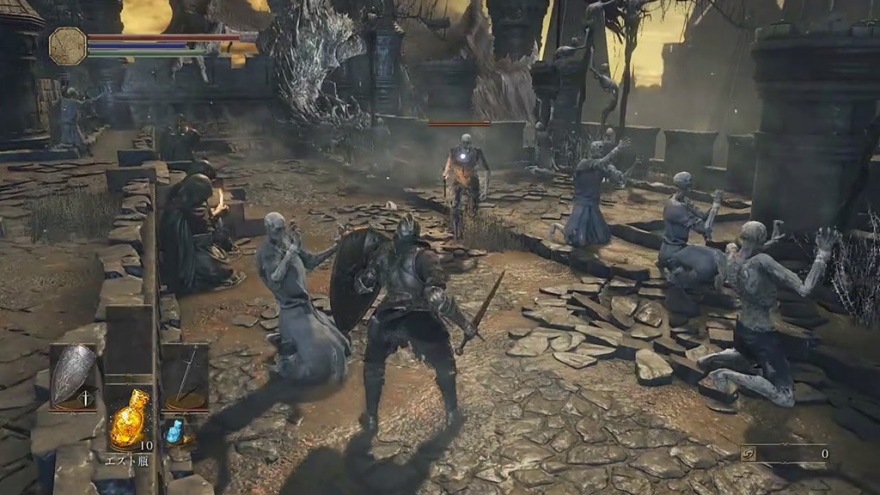
Then there are your Isometric Point-and-Click Dungeon Crawlers which are most famous from the immensely popular Diablo series. Here, a very different real-time combat system is being utilized, and the player is given a very different perspective when controlling their PC, but nonetheless, this genre of games fits most of the key requirements that seem to qualify a game to be an ARPG.
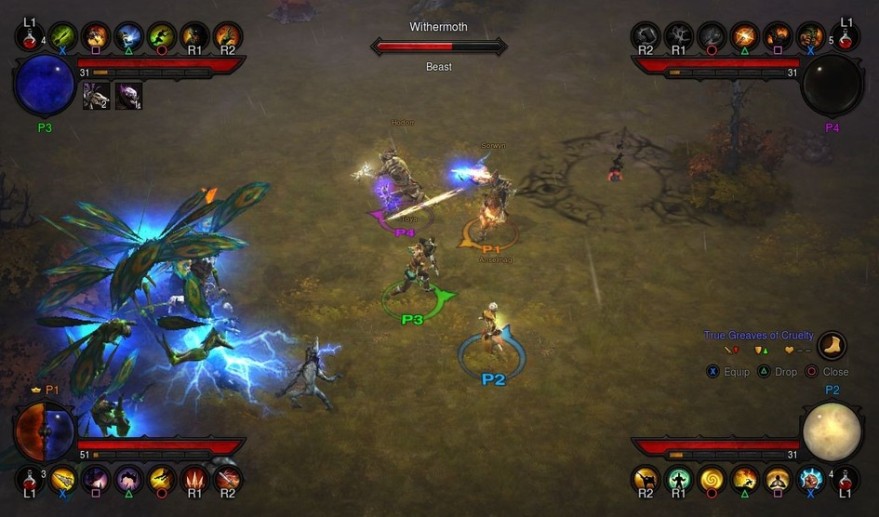
There are Open-World ARPG’s which just supplements a massive environment that is almost entirely explorable by the player, with very few invisible walls and navigational constraints, to the typical ARPG genre. Games like The Witcher, Elder Scrolls, and the recently released Horizon Zero Dawn are all examples of this ARPG sub-genre.
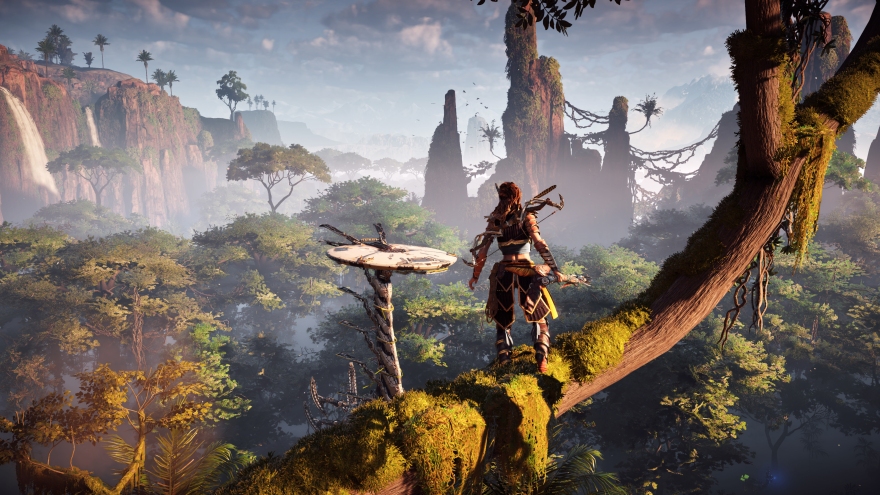
I believe that even the newly released Legend of Zelda: Breath of the Wild would fit underneath this category of Open-World ARPG, especially with all the RPG elements the newest Nintendo title has added, making it far more than just your everyday Action-Adventure game.

Lastly, there are Third-Person Shooters which quite a few people argue should also be considered underneath the umbrella of ARPG’s. This is the hardest sub-genre for me to accept as being part of the ARPG tent (besides First-Person Shooters, which some would argue are also part of this massive genre of games; I for one will never accept this, as I believe FPS’s have proven to be their own very specific genre of games, by proof of the very different audiences that are attracted to FPS’s). I feel that it’s not so easy to brand the ARPG label to any type of Shooter game, especially since these types of games often fall under different genres of games too, that are completely distinct from ARPG’s, and like FPS’s attract entirely different audiences of gamers. One example, however of a Shooter, and a First-Person Shooter at that, that has drawn my attention as of late due to the immense amount of detail put into the game and how it does actually exhibit a number of common ARPG elements, is the recently released Resident Evil 7. Yes, Resident Evil 7 is a Horror Shooter Game first and foremost, but there are elements of this game, that have challenged my original understanding of what an ARPG is and what it isn’t. I will be discussing Resident Evil 7 in more detail, upon completing the game, which I hope will happen this upcoming week.
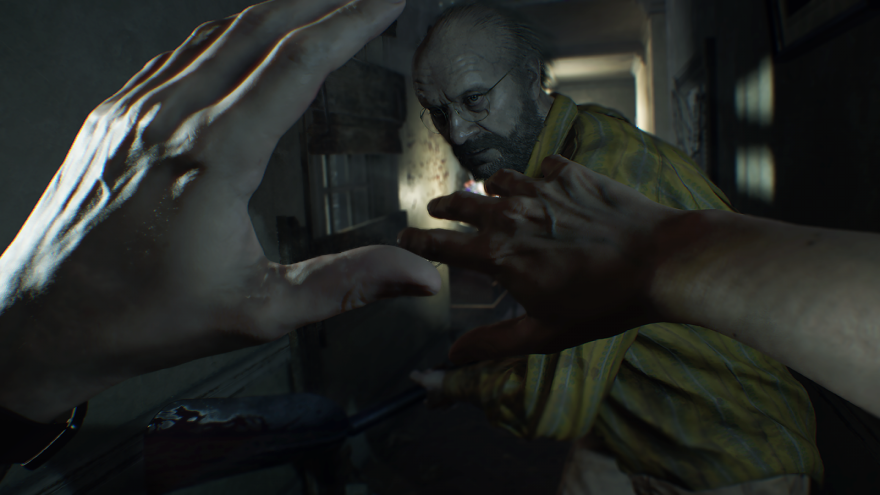
So, I realize, that after after all of that, I haven’t really answered the question I initially posed on what an ARPG actually is, or at least, what I consider it to be. I actually have probably further confused you with how convoluted I’ve made the ARPG genre appear. But the truth is, that I really can’t pinpoint a clean definition on what an ARPG is. And in my opinion the Game Industry seems to be having a similar problem. That’s why you’ll see a game branded with a game genre that has many similarities to another gaming genre, and why people are often confused as to what differentiates these various genres from one another. This is especially evident with ARPG’s, since it’s gaming genre is so loosely defined and it’s borders are always open, it seems, to other sub-genres taking a place underneath it’s broad umbrella.
To me an ARPG is just a Role-Playing Game where the player takes control of another character, where the game is very action oriented, and the combat is real-time. Those are the only qualifications I use when considering what makes an ARPG. I used to believe that ARPG’s were exclusively third-person, but now even that belief is being challenged. To me, I feel like the huge flux of incoming game sub-genres just over-complicates things for everyone. For a student going into Game Design, it’s a huge hassle trying to dissect what differentiates one very specific sub-genre from another, and in today’s world with the need to abbreviate and shorten everything into an acronym, it makes it even harder.
Some people may hold the opposite point of view, that these differentiating sub-genres are necessary, and these same people probably think that I’m an ignoramus for not expressing as much confidence with my knowledge of them. But if you ask me, a lot of these sub-genres aren’t all that different from one another and seem hastily thrown together to find a special category for a minor variation in a newly released game. Especially when it comes to ARPG’s.
Haha, I didn’t mean to go into full dissertation mode there, but with some of these Game Design related topics, I get frustrated with how over-complicated everything is. I feel like a lot of this unnecessary complexity and specificity just throws a wrench into the communication process, where it’s no longer as easy as it used to be to talk about gaming.
Again, this is just my personal opinion. I’d love to hear from any of you who have different opinions on what classifies an ARPG, or if you’d simply like to weigh in on the discussion on just how useful or accurate the various gaming sub-genres are these days.
I’ll be continuing my countdown of Dark Souls 3‘s bosses in my next post, so definitely stay tuned for that. And keep an eye out next week for when I finally get to my analysis and dissection of Resident Evil 7.